Women in Avon Fire and Rescue describe 'sexist' culture
- Published
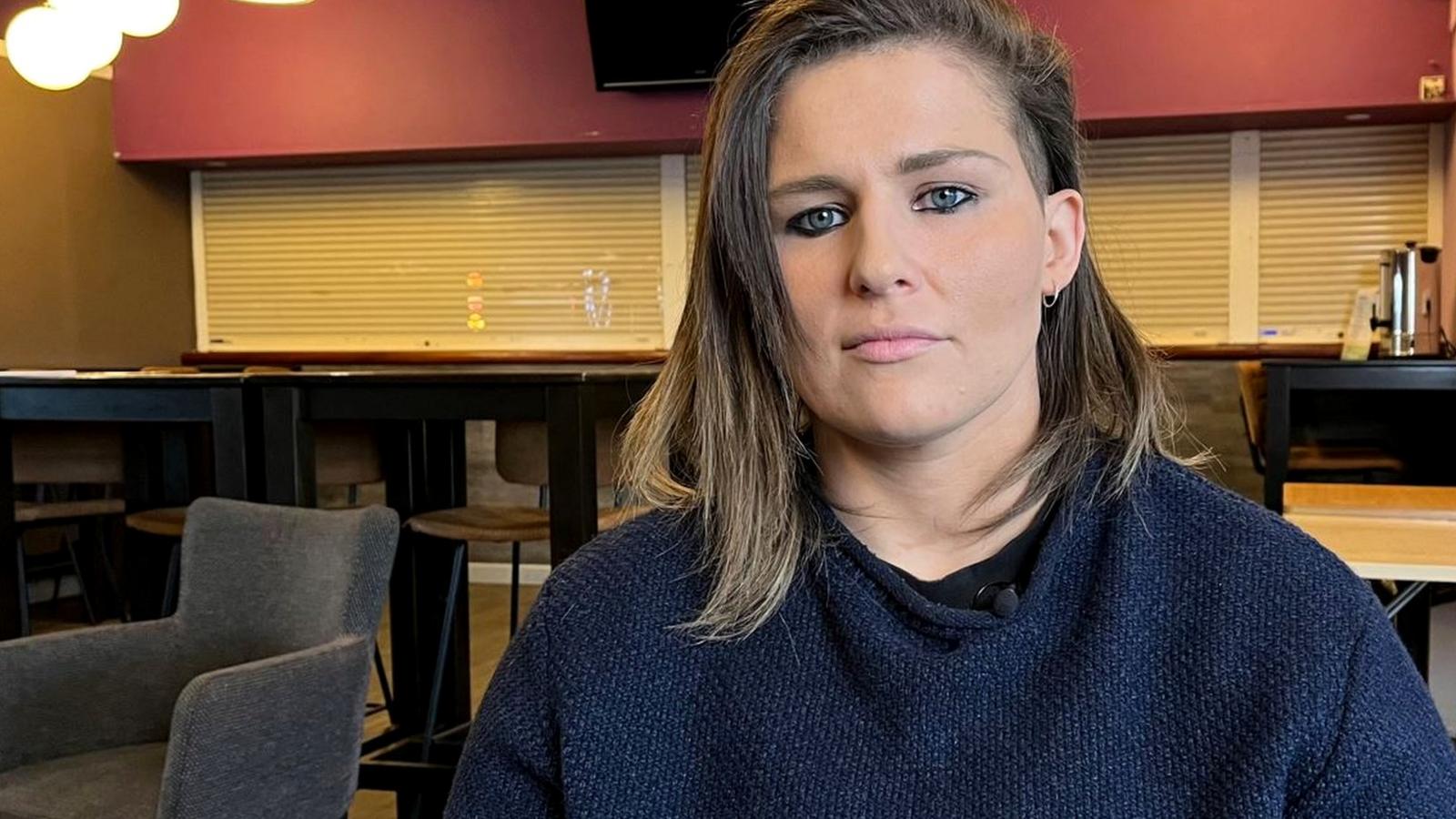
Sasha Acheson won an employment tribunal on the grounds of sexism and bullying
Women employed by Avon Fire & Rescue Service (AFRS) have described a widespread culture of sexism and bullying.
It comes after a female firefighter won an employment tribunal on the grounds of sexual discrimination last year.
The BBC has heard complaints from serving and former firefighters. There have also been several critical inspectors' reports into the service.
AFRS said it is taking "decisive action" to change its culture.
The BBC has spoken to more than a dozen former and current firefighters at the service who described experiencing sexist comments, bullying, a glass ceiling for women, and a "climate of fear" around reporting their concerns.
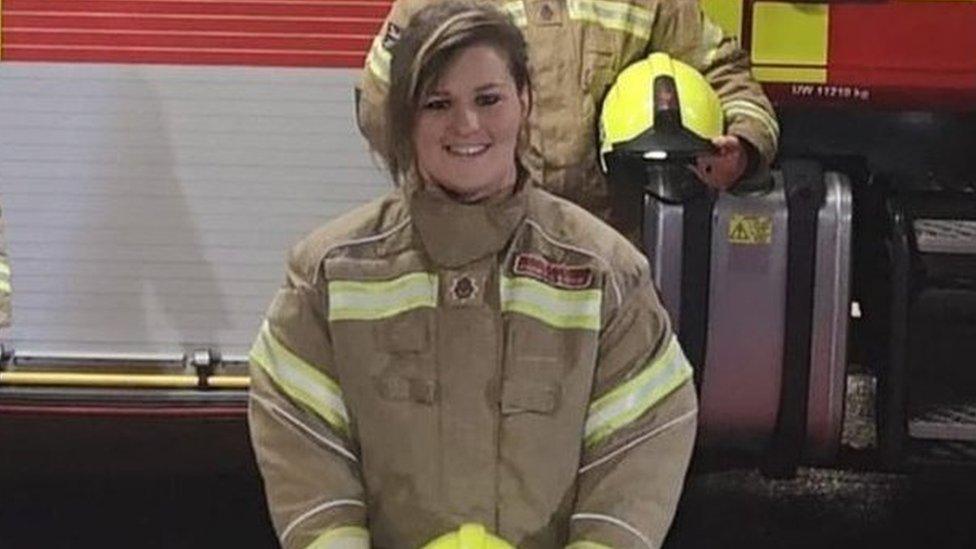
Sasha Acheson is a former England rugby player who worked for Avon Fire from 2018 to 2022
Sasha Acheson, a former England Rugby player and AFRS firefighter, said she was "beyond broken" by her experience at AFRS.
She won a landmark employment tribunal case in December 2023 against her former employer. The judge upheld her claims of sex discrimination, victimisation and harassment on grounds of sexual orientation.
She said the culture was one in which women were frequently objectified. Soon after she joined AFRS in 2021, she was dismayed by the response to a new female firefighter.
"The first thing my manager said was, 'Is she fit?'
"Another girl came out in her gym kit and she was told she should have been working up a sweat in the kitchen."
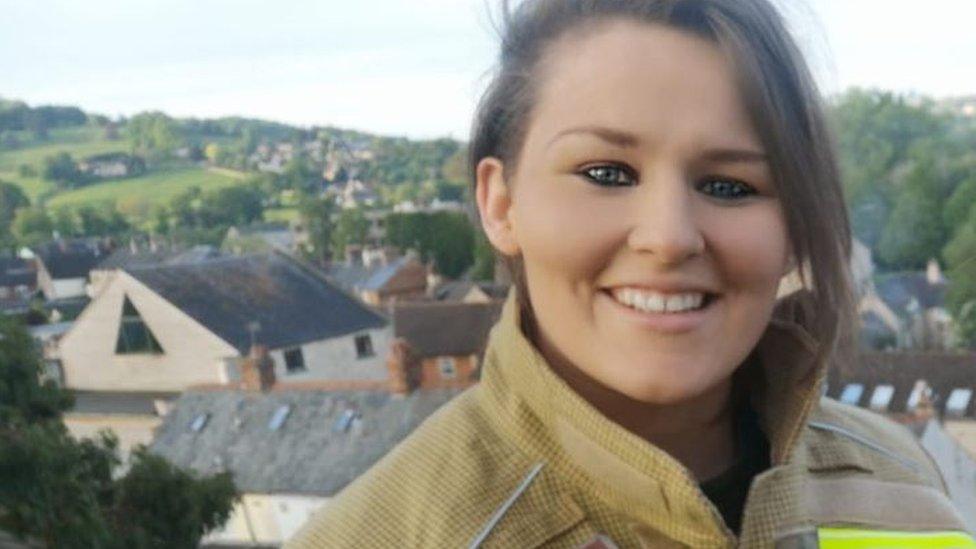
Sasha Acheson says a manager squared up to her when she confronted him about sexist language
She alleges she was regularly belittled, subjected to sexual comments and at one stage, almost assaulted.
"I actually said to my crew manager at the time, 'I'm not sure if you're aware but the way you speak to or about women is not OK,'" she said.
"He just flipped, marched towards me swearing. I was walking backwards and he was genuinely going to headbutt me."
She also believed her career was held back by managers failing to submit papers for training courses that would have helped her win promotion.
Ms Acheson claimed a poisonous atmosphere developed against her. She left AFRS in 2022 with her mental health in tatters.
She said: "My family and friends have always said that I was the strongest person that they knew and I wasn't then. I was having nightmares. I was in a daze. I had a panic attack; I'd never had a panic attack before."
After quitting, she lived in a caravan for 15 months while working and trying to rebuild her life.
She is waiting to hear about compensation, following her victory at the employment tribunal.

Alex Sienesi says she felt "belittled and dehumanised" by her experience at Avon Fire & Rescue
Alex Sienesi said she had a similar experience at AFRS between 2017 and 2022 and said a culture of sexism was evident from the start.
"I was made to feel quite self-conscious. Comments were made about my bottom, my appearance, about what I was wearing. Pornographic material was shown in front of me," she said.
"I was told I wasn't good enough because I was female… One of the comments I did receive was, 'You are going to have to work twice as hard as any male to be considered their equal.'
"I was told that the only reason I was invited on training was because they wanted me to stand there and look pretty."
She said she was left feeling worthless.
"I would regularly break down from the humiliation. I felt belittled, dehumanised, like I wasn't worth anything," she added.
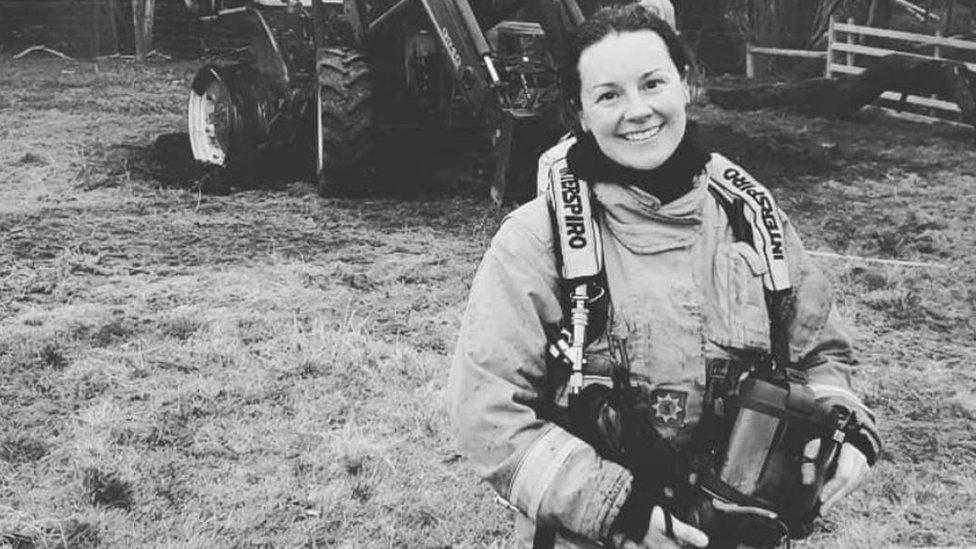
Alex Sienesi says she was given no option to work flexibly at Avon Fire & Rescue Service
"I'd get very anxious about going to drill nights because I thought, 'What's in store for me tonight?'. I really lost my confidence and just dreaded this job that I loved."
She switched to a new station in 2019 but left altogether in 2022. She said she believed a glass ceiling exists for female firefighters at AFRS.
"The decision was almost taken out of my hands because of the lack of willingness to discuss flexible working. Being a single parent. I just physically couldn't manage it any more," she added.
'Spreading Rumours'
The BBC also spoke to two firefighters who allege senior management did not take reports of sexual misbehaviour seriously enough.
James Coomber worked at AFRS for 16 years until 2023. At one stage, he told managers of his belief that a colleague had potentially committed rape.
"The next interaction I had was indirectly from our HR department to say that they had heard that I was spreading malicious rumours and I could effectively face disciplinary actions," he said.
A female firefighter who wishes to remain anonymous said she had a similar experience.
She said she heard disturbing reports about a colleague's sexual behaviour outside work but was told not to discuss "highly sensitive and confidential allegations" or "spread rumours" as "that might be construed as harassment [or] bullying".
The culture at Avon Fire and Rescue Service has been in the spotlight since 2017, when a Home Office investigation found a perception among staff that bullying and harassment was endemic.
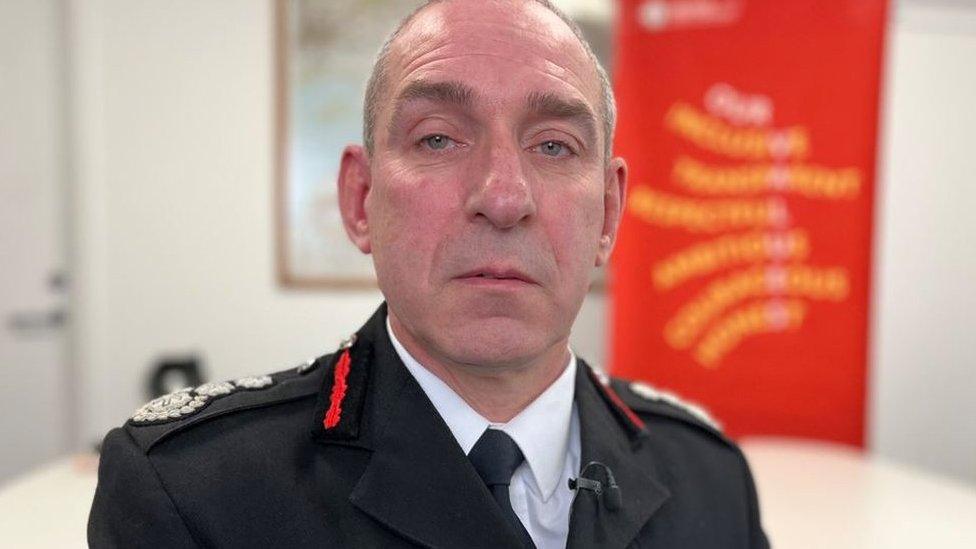
AFRS Chief Fire Officer Simon Shilton says the service has launched more than twenty initiatives to combat sexism
The latest inspection by His Majesty's Inspectorate of Constabulary and Fire & Rescue Services (HMICFRS) published in November 2023, found the service was inadequate in "promoting the right values and culture".
Avon Fire and Rescue Service's Chief Fire Officer Simon Shilton said the service had made some progress in taking steps to improve the culture.
"It's very sad to hear that that is the experience of either former or current staff within our fire and rescue service," he said.
"We have had instances in the past where… certain behaviours in the workplace have not been as we would expect.
"But when we have been told about those, we've been taking decisive action using the right policies, the right procedures. To be able to act proportionately and appropriately, to deal with those and make sure there's a clear message that such behaviours are not expected in our workplace," he added.
AFRS provided the BBC with a list of more than 20 initiatives they had launched recently, aimed at changing the culture of the organisation.
They included a confidential online reporting platform, a new professional standards board and a review of disciplinary policy.
Senior managers have been trained in leadership and unconscious bias training, and regular staff surveys are being conducted. All staff must also now pass DBS checks.
However, a current female firefighter who wishes to remain anonymous told the BBC: "The culture is still as poor as inspectors have found repeatedly. Each time the management put out a statement saying it's historic. It's clearly not. No-one is listening. There is a climate of fear still to speak up."
Another current employee said: "I was bullied and belittled by a manager. The fire service is like an abusive family, where no-one speaks about the problem. There are constant comments about women, and no-one is ever called out about it."
'More work to be done'
Avon Fire & Rescue Service is not the only service to have issues with its culture.
In February, the Welsh government announced it would take over South Wales Fire Service following a sexism scandal.
A report in March 2023 by His Majesty's Inspectorate of Constabulary and Fire & Rescue Services (HMICFRS) found staff complaints of homophobic, sexist and racist behaviour in a quarter of English fire services.
The Home Affairs Select Committee has recently held two evidence sessions looking at the culture of fire and rescue services.
Minister of State for Crime, Police and Fire Chris Philp told the committee: "A lot of progress has been made in the last two or three years. It is certainly accepted at the very senior levels of the fire service, but more work needs to be done."
Avon's Chief Fire Officer Simon Shilton said: "I don't want to demonise my whole workforce. I work with some incredible men and women right across the organisation who are doing their absolute best to provide the best possible service to our community.
"Culture takes a long time to change. What we need is everyone on board."

Follow BBC West on Facebook, external, X, external and Instagram, external. Send your story ideas to: bristol@bbc.co.uk , external